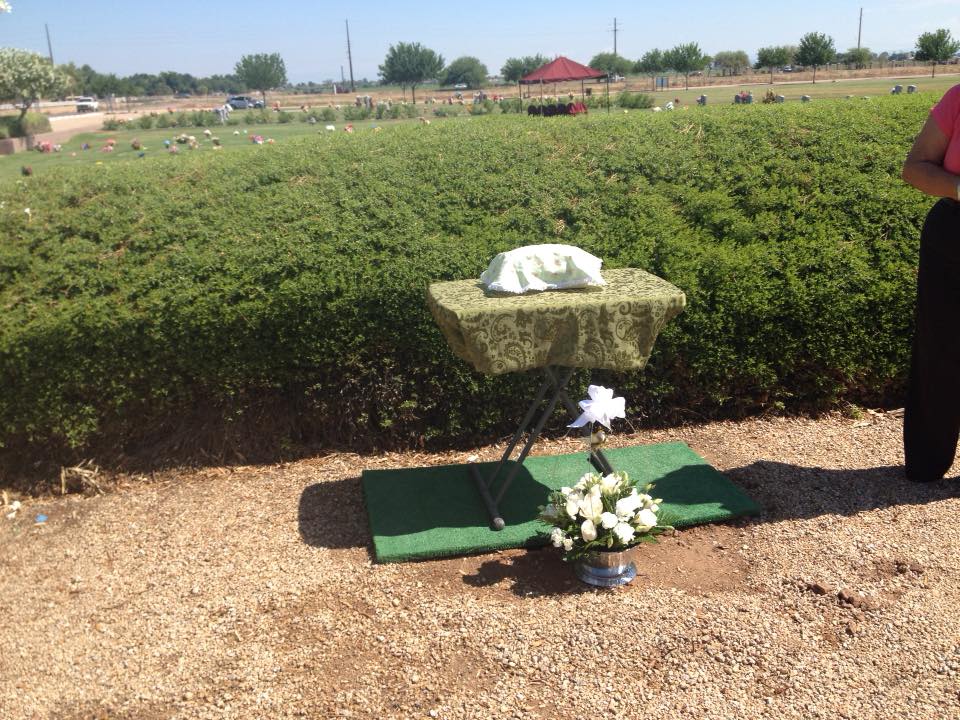This is a guest post from Justin Menno, doctoral candidate in theology at the University of Dayton, and instructor at Catholic Central High School in Grand Rapids, MI. The following comes from research I was fortunate enough to hear him present at last year’s New Wine, New Wineskins conference.
The controversy surrounding last week’s undercover video of Planned Parenthood’s resident medical director describing what is done to pre-born victims of abortion violence has generally centered on the apparent commercialization of the remains of these victims. Or it has centered on the apparent manipulation of abortion procedures in ways contrary to surgical protocol. Or it has centered on the all-too-apparent indifference to nascent human life by Planned Parenthood’s resident medical director. Each of these responses is merited, and I agree with them all in outline if not exact detail.
But lost amidst these responses, I’d argue, is an even more basic controversy. And this is none other than that of whether abortion providers should be permitted to receive custody of the remains of those they just killed in the first place. In short, they shouldn’t. And I should note that I say this not just as some moral condemnation or rhetorical call to action. Rather, I say this because current practice is contrary not only to the underlying principles of laws pertaining to the treatment and custody of human remains in the U.S., but the general thrust of them. In other words, I’m claiming that insofar as these laws just mentioned are applied consistently and coherently, in no way should anyone who either commits lethal violence against pre-born children or who is a party to their killing be permitted to receive custody of their remains.
To understand why this is so, I first want to pose a couple of questions, and then answer them in brief.
First, it is important to ask how the remains of pre-born victims of abortion are treated in law and practice and then ask how they should be. The tautology that human remains are human remains is straightforward enough. And the derivative principle all human remains should be treated as human remains is just as clear. And by and large, this tautology and principle are recognized in laws throughout the U.S. on the disposition and treatment of human remains. For example, current laws make clear that human remains are a category separate from pathological waste and regulated medical waste, and are in no way to be treated like the latter. In other words, these laws prohibit human remains from being incinerated and subsequently dumped in landfills with these other types of waste or any type of waste for that matter. And since the fetal remains of pre-born victims of abortion violence are human remains, it seems only logical and right that they be treated like all other human remains with the respect and integrity accorded to them in law.
But, alas, abortion law in the U.S. tends to twist and contort even the most reasonable of legal and moral principles. And nowhere is this more evident than in laws pertaining to the custody and treatment of the fetal remains of pre-born victims of abortion violence. These laws, in fact, are much like entering into the Twilight Zone, just with a lot less science, and a lot more fiction.
For the most part, the fetal remains of aborted children tend to be treated in law as a class separate from all other human remains, and so are dispensed from the treatment required of all other human remains. From a scientific standpoint, to call the fetal remains of human beings something other than human remains is sheer nonsense. But it is important note that, even from a legal standpoint, the alternative categorization above would never stand up to scrutiny, especially in terms of contract law.
To understand why, imagine for a moment that Stem Express, the organ harvesting company mentioned in the undercover video noted earlier, received fetal remains from Planned Parenthood. But upon later inspection, the company discovered that they were the fetal remains of pigs or sheep or donkeys. If Stem Express sued for breach of contract, the company would win in court, and most likely, win easily and decisively. And this is because Stem Express had more than a reasonable expectation that would receive the fetal remains of human beings, since Planned Parenthood traffics exclusively in the generation and disposal of the fetal remains of human beings, and not those of pigs or sheep or donkeys.
So, if it is the case that contract law won’t abide the re-categorization of the fetal remains of human beings as something other than human remains, then neither should any other area of law. And because the authority of law rests on its own internal consistency and coherence, it really should behoove all invested in this authority to clarify that the fetal remains of pre-born victims of abortion violence are indeed human remains. And building on this clarification, it should similarly move them to correct the current differential treatment of these remains, and so restore to them the dignified treatment of all other human remains.
Second, based on the above, it is important to ask the related question of who the proper custodian of the remains of pre-born victims of abortion violence is. I’ll reiterate what I mentioned earlier, and that is that no one who either kills or who is a party to the killing of pre-born children should receive custody of their remains. At the very least, this means that abortion providers like Planned Parenthood should not be able to receive the remains of aborted children or be responsible for their disposition. But moreover, it means that any parent or family member or friend who is party to the killing of pre-born children, should likewise not be able to receive the remains of these children or be responsible for their disposition.
The principle underlying the point above is one recognized throughout current law on the custody and disposition of human remains in the U.S. And this is the principle that proper custody in death follows from proper custody in life. In current law, it is recognized that the custody of children or other vulnerable groups can be suspended or even revoked not just on the basis of criminal convictions for neglect or abuse or harm, but on the basis of preponderance of evidence against them. In other words, though criminal law informs custody decisions pertaining to the living, it does not control them. And the same holds true in regard to custody decisions related to the deceased.
In the U.S., there are numerous “slayer statutes” that make clear that anyone who kills or who is party to the killing of a human being is barred from receiving the remains of the one who was killed. The principle behind these statutes is simple enough: that no one can lethally reject someone in life and then claim them in death. And it is important to note that this principle not only undergirds slayer statutes, but law and statutes on the inheritance of assets and property of decedents. No one, for example, can kill someone deliberately and then lawfully claim a life insurance policy on them. And so, if it is overwhelmingly recognized as a matter of law and principle that no one can rightfully receive the human remains of those that they deliberately killed, it only seems reasonable to expect in law that no one should be able to receive the human remains of pre-born children that they deliberately killed.
Now I’m not so naïve as to think that some abortion-rights advocates may dispute what I’ve said here. But should they do so, I’ll note that it only invites the collapse of autonomy-based arguments in favor of abortion. In other words, one cannot claim autonomy from someone in life to the point of justify their killing, and then claim right and proper relation to them in death. Claim the latter and the former cannot be justified. Claim the former and the latter cannot be rendered coherent.
In sum, laws on the treatment and custody of the remains of pre-born victims of abortion violence should be clarified and corrected. And it is with this in mind that I want to close with two further, albeit brief proposals.
First, to all moral theologians and ethicists invested in beginning-of-life and end-of-life debates, I’d like to propose that the category of the human rather than the category of personhood is a more promising and solid criterion for further debate. Now in saying this I don’t mean to suggest that the category of personhood and its application in the debates above is unimportant. It is. Nor do I mean to suggest that the continued demonstration of the strengths inherent to substantial-identity conceptions of personhood and the weaknesses inherent to capacity-based and functionalist conceptions of personhood is unimportant. It most definitely is.
Rather, I propose the above so as to suggest that the category of the human is a better guide to understanding what is owed to us in death, and by reverse extension, what is owed to us in life. In law pertaining to the treatment and disposition of the deceased, there is an important distinction between “human remains,” the remains of my body, and so me, and “personal remains,” the remains of those items that once belonged to me. In light of this distinction, it is important to note that it is the category of the human that is the proper and primary guide to how the bodies of the voiceless ought to be treated. And if it is the case that the final cause of any activity sets the terms and context for its proper exercise, then we might want to consider to how this principle applies in ethics. In other words, we might want to consider how the final act of dignity and respect that is accorded to us in death in virtue of being a human being ought to set the terms and context for our treatment in life in virtue of being a human being.
Second, to all Christian faithful, I’d like to propose a renewed consideration of the corporal work of mercy of burying the dead. It is good to remember that each of these corporal works are not just works of mercy, but works of justice. And it was with this dual light in mind Augustine pronounced the care and burial of the dead to be nothing less than an “office of humanity.”
But even more important to remember, I’d argue, is the fact that our Lord and Savior did not exempt himself even in death from this least work and this least dignity. In so entrusting himself to Mary as “the Word without words” (Verbum sine verbo) in death, he cast light of the humility of this moment. But even more so, he cast light, and cast it ever more radiantly, on the original entrusting of himself to his mother at the beginning of his incarnate life.
And so with Christ’s humility and Mary’s care of him in life and in death in mind, I’d invite all concerned to work toward ensuring the least dignity of burial to the least among us, most especially pre-born victims of abortion violence.






I struggle with the idea that parents should never be allowed to receive the remains of their aborted child. What about the cases where they did so to save the life of the mother, or agonized over a fetal abnormality but otherwise very much loved their child?
Otherwise I like your argument and agree that PP should not be able to handle fetal remains for the reasons you put forth.
Thanks!
Sean, I’m not sure I follow your struggle with parents seeing the remains of an aborted child. In my opinion, it would be best to transition to final arrangements and burial at that point, as Justin argues with applying care of the dead for all human life. Have you ever visited a tomb of unborn children. There is one at Franciscan University of Steubenbenville and it is beautiful! With a tomb or a grave, one can spiritually care for an unborn, aborted child, as one would for any deceased loved one.
Your well reasoned article impressed upon me that there are likely a constellation of more detailed moral issues related to abortion which await my investigation. I’d never considered this issue before, so thank you for the education.
While I find intellectual explorations such as the one you just took us on quite engaging, I’m also somewhat concerned that they may distract our energies from the bottom line. Focusing very clearly on the bottom line of ending abortion may be the most efficient way to address all the more detailed moral questions related to abortion, such as the issue of remains which you direct us to here.
The bottom line challenge might be defined something like this….
How can we dramatically reduce the use of abortion among those who will never accept Catholic teachings? This group is after all the majority of the population, thus any serious abortion reduction strategy would seem to necessarily have to be focused here.
If we define the challenge in a realistic manner taking in to account the limitations of the Church’s influence, it should soon become clear that Catholic moral teachings will never be a sufficient solution to abortion. A useful contribution to the conversation for sure, but simply not enough in themselves.
If we define the challenge in a realistic manner, it should soon become clear that science has the most power to effect change here.
Imagine a birth control pill of the future. It is given one time to ten year girls, preventing all future pregnancies. The effects of the pill can be reversed by only by revisiting their doctor. Imagine that the pill is safe, effective, convenient and free. There is nothing anyone will ever be able to do within the realm of moral teachings to reduce abortion as effectively as such a pill.
I realize that many Catholics will never embrace such a pill, but that’s not a problem. If they are that loyal to Church teachings they will not be considering having abortions, thus there is no problem that needs to be solved in their case.
Such a thought experiment can help us explore our own relationship to abortion.
What is most important to us, dramatically reducing abortions, or positioning ourselves as moral authorities? If abortion can only be dramatically reduced via technology, are we still interested?
What is our bottom line?
To continue the thought experiment above, we might imagine that some brilliant young Catholic scientist uncovers the secret to making the futuristic birth control pill referenced above.
Such an effective pill could largely end abortion, an important goal of the Church, but it would also seem to violate Church teachings on contraception.
The young scientist takes this dilemma to the Pope. What would the Pope say? What should he say? Should the Pope give his blessing to this research? Should he help fund it? Or should he guide the young man to apply his talents elsewhere?
Can an answer be found in the Church’s teaching on just war? The Church is obviously against war in principle, but it will sometimes give it’s blessings to a particular war when it concludes that war is the lesser of two evils.
Can such just war reasoning be applied to support for contraception research as being the lesser of two evils in the war against abortion? Not the ideal solution from the Church’s perspective, but better than no solution?
If I had the formula for a truly safe and effective futuristic birth control pill on my desk, what should I do with it?
Justin- We just met at the NWNW conference and I just had the opportunity to look at the CMT blog after a hiatus of approximately 3 weeks. This piece is quite fine and necessary as well. Two things, I agree whole heartedly with your category of human over personhood. Second, your appeal to the corporal works of mercy is quite timely vis-à-vis the upcoming jubilee year of mercy. I am currently working on a piece that connects both the spiritual and corporal works of mercy to contemporary moral issues – I will be honored to credit your insights with regard to burping the dead, along with come other issues I have regarding that particular work (e.g., the moral necessity of interment of Cremains, the importance of the identification of remains of victims of violent crime/war, etc.)
Obviously, I meant burying the dead… are you kidding me??? LOL